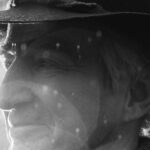
The police created a perimeter with about 100 checkpoints in Ottawa’s downtown core on Thursday, in what appeared to be preparation for a promised clampdown on demonstrators who have paralyzed the capital of Canada for three weeks.
“The action is imminent,” Steve Bell, interim chief of the Ottawa Police Service, said Thursday afternoon, adding that the police were committed to ending the “unlawful occupation.”
He said the police perimeter would help ensure that those seeking entry to the area for an unlawful reason such as joining a protest would not be able to access it.
After declaring the downtown a secure zone closed to outsiders, police officials also closed all exits leading to the city center on the Trans-Canada Highway, which is Ottawa’s crosstown expressway.
Five municipal buses were seen Thursday morning idling on a street adjacent to a convention center near the airport, and police officers were seen boarding at least two of them, which traveled to the city’s western suburbs. Ontario provincial police officers were seen gathering at major hotels in that area.
Around the Parliament building downtown, construction workers spent the dawn hours putting up 12-foot-high wire fencing in a soggy morning rain, and protesters braced for police action. Among them was Andrew Broe, who said the truckers were exchanging text messages with the protest leadership. He said their instructions were to remain in their trucks, lock the doors and not open them for, anyone including the police.
Addressing the House of Commons on Thursday, Prime Minister Justin Trudeau called for the protesters to go home. “It is high time that these illegal and dangerous activities stop, including here in Ottawa,” he said.
In a sign of intensifying frustration over the protests, on Thursday the scope of a class-action lawsuit against the protesters was expanded to include more workers and businesses whose livelihoods have been upended by the protests. In total, the lawsuit is seeking about 306 million Canadian dollars in compensation for lost income.
The protests began weeks ago with a loosely organized group of truckers objecting to a requirement that they be vaccinated if they cross the U.S.-Canada border. With organizing help from right-wing activists, the protests ballooned into a broader movement opposed to an array of pandemic measures and to Mr. Trudeau generally.
If the clampdown takes place, it could help bring to an end a crisis that has undermined the leadership of Mr. Trudeau and disrupted local residents and the local economy. Truckers and their supporters blocked key border crossings and other routes, impeding commerce and idling automakers’ plants. Some blockaded streets and harassed residents in Ottawa, creating a round-the-clock cacophony in quiet residential neighborhoods. Physical violence has been rare.
Ottawa residents and many Canadians have grown impatient with the sluggishness of the police response, and early this week Ottawa’s police chief resigned amid criticism of law enforcement.
Mr. Trudeau took the rare step this week of declaring a national public order emergency — the first such declaration in half a century — to end the protests. The move extended more robust policing measures across the country, and took aim at both protesters’ fund-raising, which has been deemed a criminal activity, and the demonstrators’ personal and business bank accounts.
The police had begun distributing written notices to protesters in Ottawa on Wednesday warning those remaining to leave the area or face penalties. A few of the truckers have their children with them, and one police notice warned that anyone taking a minor to an illegal protest could face up to five years in prison.
Police warned protesters they could face prison for bringing children to the protests. But some protesters were defiant.
Surrounded by five of his eight children, Daryl Sheppard, a teacher from North Bay, Ontario, 220 miles northwest of Ottawa, walked through the protest on Thursday holding an anti-vaccination sign. Mr. Sheppard, 41, said he and his children would remain in Ottawa.
“I’m not really concerned with laws that infringe on my rights as a citizen, my right to bear witness,” he said.
Sarah Maslin Nir contributed reporting.




